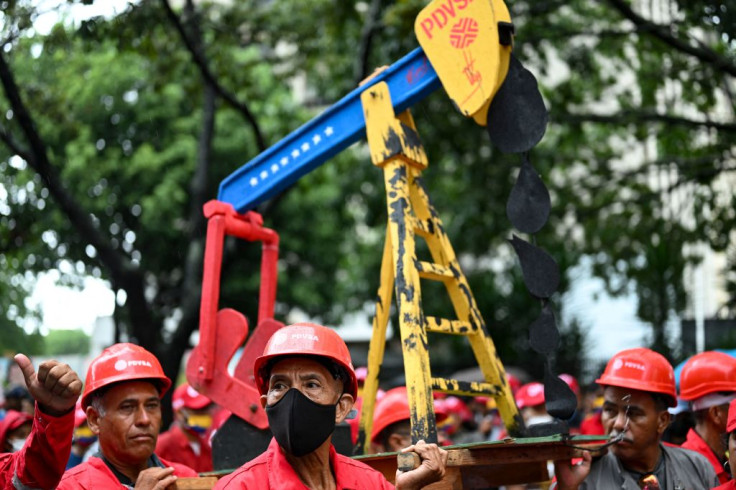
A U.S.-led effort to remove Venezuelan president Nicolás Maduro could ultimately expand global oil supply rather than destabilize it, a Bloomberg columnist claimed in an op-ed. He argued that Venezuela's underused reserves represent one of the few substantial levers left to reshape long-term energy markets.
"Despite sitting atop the world's largest oil reserves," wrote Bloomberg's Javier Blas, "it's a sad truth that Venezuela doesn't matter for the energy markets." Production remains near its lowest level in a century, at roughly 1 million barrels a day—about 70% below its late-1990s peak. The country today contributes just 0.9% of global supply, down from 11% in 1965.
The analysis notes that even a direct confrontation between Washington and Caracas would have little immediate impact on global oil. But a political transition could unlock foreign investment and turn Venezuela into "a large source of incremental petroleum supply in the decade following 2030." All that is required, the piece argues, is "capital, time and effort," given that "the geology is there."
President Donald Trump has deployed a carrier group—including the USS Gerald R. Ford—and other assets to the Caribbean. Initially framed as a counter-narcotics mission, the buildup now includes B-1 bombers and amphibious assault ships "more often used to topple governments than to blow up small drug boats," Bloomberg wrote. Asked Sunday if Maduro's time was up, Trump replied: "I would say yeah."
The report argues that a brief conflict—even one echoing U.S. operations in Grenada (1983) and Panama (1989)—could quickly shift from bullish to bearish for oil markets if a successor government opens the sector. "A U.S.-enforced change of ideology in Caracas may end" one of the market's remaining bullish narratives, Bloomberg wrote, by providing a clear answer to "where the extra crude [could] come from in a decade's time."
Venezuela's political structure, however, complicates assumptions of rapid transition. Bloomberg notes that Maduro's patronage system is tightly layered across the military and state oil company PDVSA:
"Those with the power to topple the regime have the most to lose from its collapse. Rather than push Maduro out, as Trump hopes, his inner circle may rally around the very well-greased flag pole"
A transition would put the vast Orinoco Belt back into play. The region contains "more than 15% of the world's oil," comparable to Canada's Athabasca basin. Venezuela once envisioned raising output to 6.5 million barrels per day, a plan halted after Hugo Chávez reversed policy and later expropriated foreign assets.
Semafor reported on Tuesday that investors are positioning for this possibility. According to outlet, Venezuelan opposition envoys, led by Nobel Prize Winner María Corina Machado, met with U.S. investment firms during IMF-World Bank meetings, and UBS circulated a memo arguing Venezuela's "severely underutilized economy" could unlock major opportunities.
Semafor noted that UBS's chief investment office published a memo focusing on "visualizing the day after tomorrow" in the South American country. "Venezuela's transition away from Chavismo could unlock major opportunities," largely due to its vast oil reserves and "severely underutilized economy," the document added.
© 2025 Latin Times. All rights reserved. Do not reproduce without permission.






